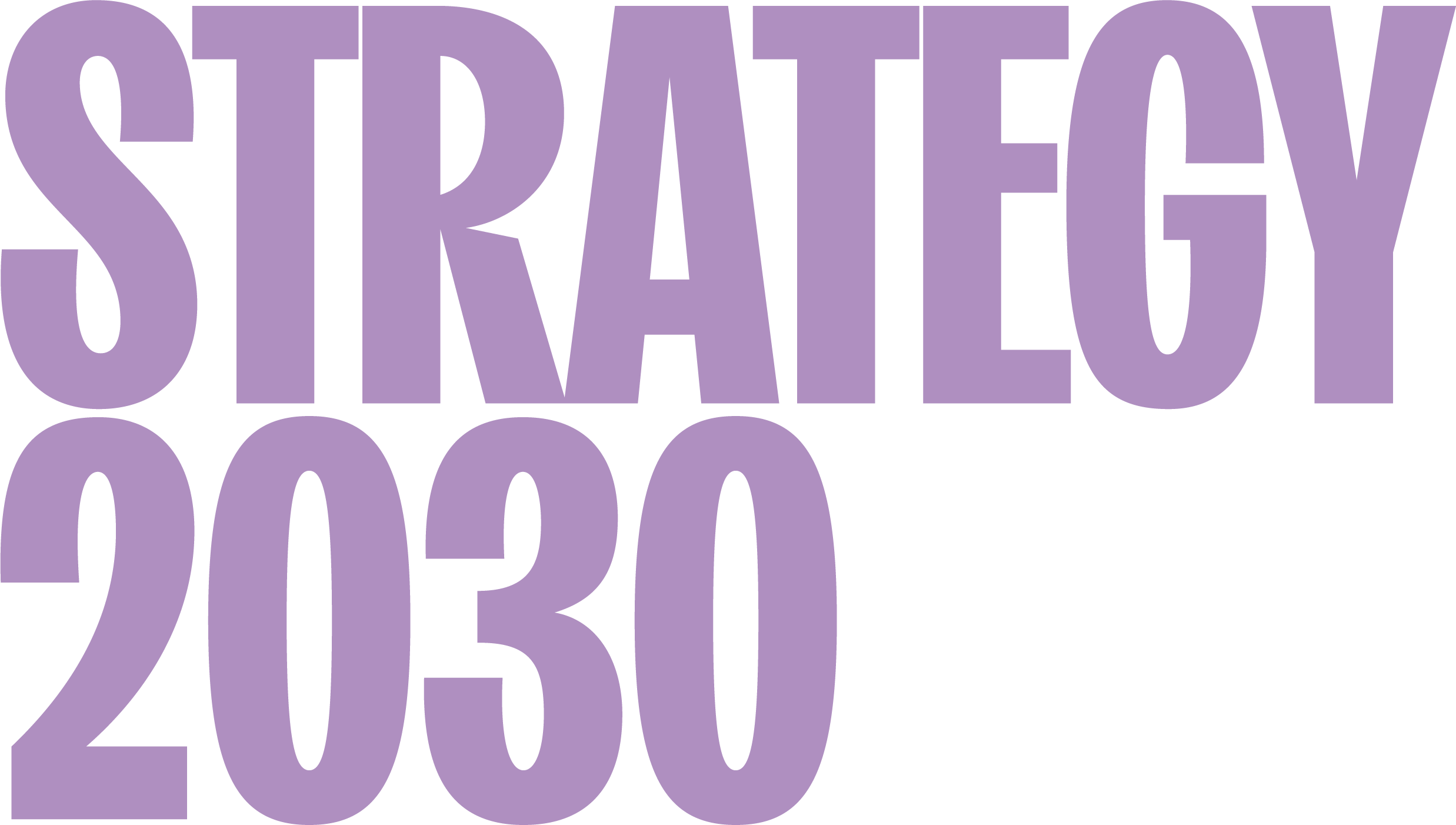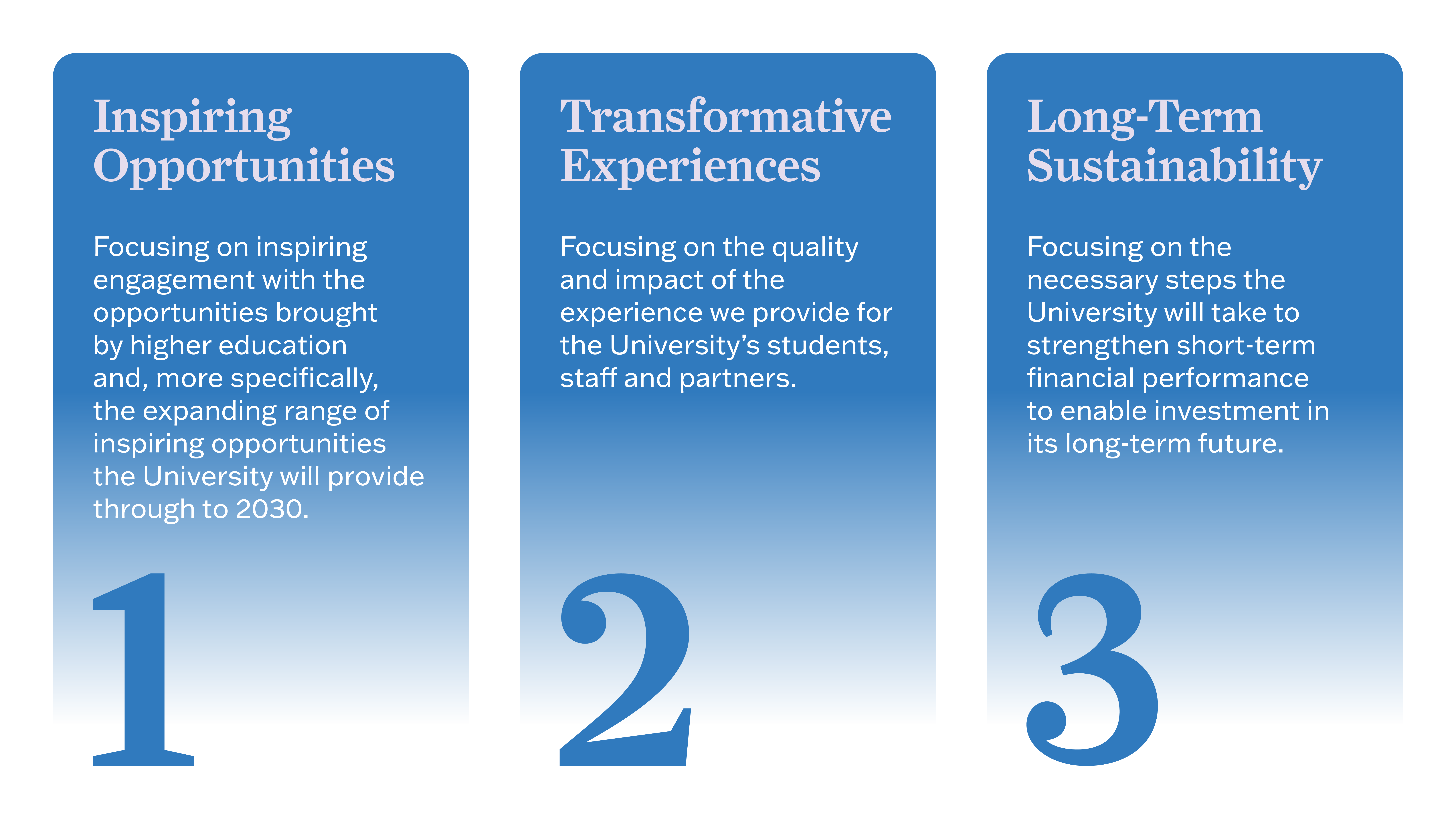It is with a spirit of pragmatism that the University has approached developing Strategy 2030.
With our Values acting as guiding principles and our Mission defining our core purpose, Strategy 2030 is built on these principles and this purpose to define our Vision for Lincoln Bishop University by 2030.

Our Vision
For Lincoln Bishop University people are everything: we flourish together when united by social purpose.
By 2030, as a confident, person-centred and forward-looking university offering a highly personalised and engaging student experience on-campus and online, the positive difference we make in the lives of our students and their communities is reflected in our sector-leading reputation for widening participation with outstanding results.
Our Vision is realised through the achievement of three Strategic Goals.

Cross Cutting Themes
The pursuit of each Goal is guided by three cross-cutting themes that are of such organisational relevance and societal importance that they are integrated into the strategic development of the University:
This underscores Lincoln Bishop’s commitment to doing all we can through projects, programmes, courses, research and knowledge exchange to make a positive impact on society, locally, nationally and internationally. Working in partnership, we will respond with imagination and energy to socio-economic challenges within the communities we serve, dedicated to breaking down barriers to opportunities, promoting equality, diversity and inclusion, and advancing social mobility.
This reflects the ways in which digital technologies are shaping our future, for individuals, communities and organisations. The University will take steps to enable acquisition of increasingly essential and universal digital and AI competencies. In recognition of its ethical and environmental impacts, Lincoln Bishop will advocate for a responsible use of AI in its support for AI adoption within and beyond the University,
incorporating research into the use of AI tools within, for example, occupational training for teachers and health care professionals, as well as business services more generally. As an organisation, the University will take a systematic approach to the development of its digital infrastructure to strengthen operational resilience and cyber security, whilst seeking to harness the opportunities of digital transformation
for educational impact and organisational efficiency.
This encapsulates Lincoln Bishop’s longevity as an institution originally founded in 1862, and the stewardship required to ensure that in meeting the needs of the university community today we do not compromise the ability of future generations to meet their needs too. In order to protect and conserve natural resources, reduce pollution, and mitigate the impacts of climate change, the University will embed climate action into its curriculum and operations. In support of the Global Goals (United Nations, 2015) and as one of the most powerful and proven ways to advance sustainable development, the University will champion inclusive and equitable quality education and promote lifelong learning opportunities for all.
In summary, Inspiring Opportunities (Strategic Goal 1) delivered through Transformative Experiences (Strategic Goal 2) will enable Long-term Sustainability (Strategic Goal 3), with the University committed to advancing the cross-cutting themes of Social Purpose, Digital Transformation and Sustainable Development.
Our Strategic Goals
Implementing our Strategy 2030
With oversight by the Lincoln Bishop University Council, implementation of Strategy 2030 will be driven by executive leadership throughout the institution. Closely guided by Strategy 2030 as the high-level, public-facing ‘blueprint’ for our future as Lincoln Bishop University, the Plan is underpinned by a set of supporting internal planning documents that define the actions to be achieved through to 2030. These include sub-strategies for priority aspects of strategic development, including: Academic Portfolio Innovation, Learning, Teaching & Student Success, Research & Knowledge Exchange, People, Estates & Accommodation, Data , Marketing and External Relations.
To help co-ordinate implementation of the actions specified within the University’s suite of sub-strategies, a Priority Plan will be produced annually as a project plan for the implementation of priority actions to be led by the University Executive Group. In addition, a rolling Digital Transformation Roadmap will ensure the University continues to iteratively develop its digital infrastructure and systems to enhance security as well as productivity, through improved access to information and services.







